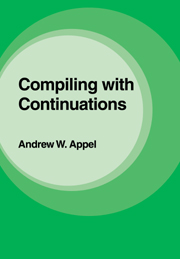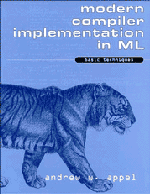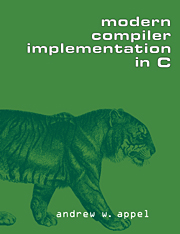Compiling with Continuations
This book shows how continuation-passing style is used as an intermediate representation to perform optimizations and program transformations. Continuations can be used to compile most programming languages. The method is illustrated in a compiler for the programming language Standard ML. Prior knowledge of ML, however, is not necessary, as the author carefully explains each concept as it arises. This is the first book to show how concepts from the theory of programming languages can be applied to the production of practical optimizing compilers for modern languages like ML. All the details of compiling are covered, including the interface to a runtime system and garbage collector.
Reviews & endorsements
"I recommend the book to language designers and implementors specializing in the functional paradigm." F.G. Pagan, Computing Reviews
Product details
April 2011Adobe eBook Reader
9780511880650
0 pages
0kg
This ISBN is for an eBook version which is distributed on our behalf by a third party.
Table of Contents
- Acknowledgements
- 1. Overview
- 2. Continuation-passing style
- 3. Semantics of the CPS
- 4. ML-specific optimizations
- 5. Conversion into CPS
- 6. Optimization of the CPS
- 7. Beta expansion
- 8. Hoisting
- 9. Common subexpressions
- 10. Closure conversion
- 11. Register spilling
- 12. Space complexity
- 13. The abstract machine
- 14. Machine-code generation
- 15. Performance evaluation
- 16. The runtime system
- 17. Parallel programming
- 18. Future directions
- Appendices
- Bibliography
- Index.






